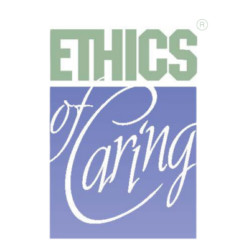“At the heart of current polarizations in our societies is a collapse of trust – or more accurately, a widening and deepening of the chasms of distrust already prevalent in traumatized or oppressed communities. Healthcare, like all human-service institutions, cannot function without trust.”
WILLIAM P. NASH, MD
Consultant Social Psychiatrist to the United Nations
“Healthcare, Moral Injury, and the Awesome Power of Goodness”
Click to Share this 2023 Spotlight!
Q:
The theme for this conference is “It’s Complicated: Responding Ethically from the Beginning to the End of Life.” What does it mean to respond ethically? How does this theme resonate with your current research or practice?
At their best, healthcare systems provide compassionate, humanizing environments in which some of life’s most difficult transitions can be navigated with dignity, hope, and peace. At their worst, they are profit centers for corporations that control costs by limiting access to care in every way possible. As the character of healthcare as a for-profit business has become increasingly prominent in the U.S., frontline healthcare workers like nurses have increasingly found it simply impossible to be a compassionate, humanizing influence with every patient, however hard they try. Too often, ethical practice in such a system means finding the least of all evils in each clinical situation – for both patient and healthcare worker – while advocating for increasing resources available for care. But the least evil option in any situation is still not good, and can be a source of moral distress.
– William P. Nash
Q:
The last few years we have witnessed a disintegration in civil discourse especially with polarizing topics. Nurses can be caught in these dialogues, both with patients and their families, in their communities, as well as when they are sorting through their own values and determining how they honor them while addressing them as a professional. What are your thoughts on this, and can you give one piece of advice to address these challenges in these turbulent times? What is your perception of the current nursing ethical landscape?
At the heart of current polarizations in our societies is a collapse of trust – or more accurately, a widening and deepening of the chasms of distrust already prevalent in traumatized or oppressed communities. Healthcare, like all human-service institutions, cannot function without trust. Now, more than ever, we need to attend to and assess the levels of trust our patients and communities hold for us, minute to minute, and to protect and strengthen that trust continuously. At an institutional or regional level, inviting members of the community to participate in planning and decision-making on a regular basis can also promote trust, if done with integrity.
– William P. Nash
Q:
Can you tell us where you are finding joy in life, despite the challenges around us?
I have learned to squeeze all the joy I can out of every small victory on behalf of my patients and my professional community, even successfully establishing a trusting relationship with another human being in need. I have also just bought a beautiful little house in rural western Connecticut where I am blessed daily by experiencing the beauty of New England forests, hills, and wildlife, including a resident flock of wild turkeys that favors my backyard for some reason.
